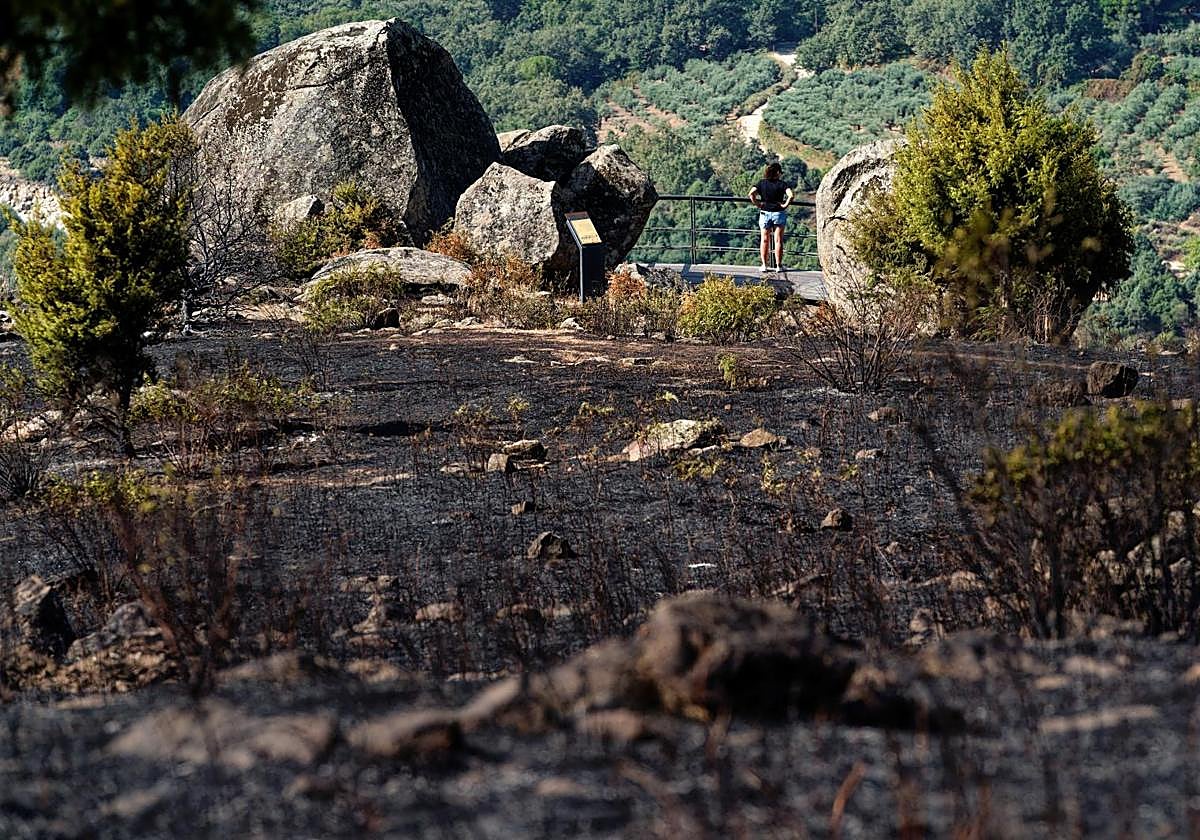95% of forest fires in Spain are sparked by human actions
More than half of all wildfires are intentional, a quarter are due to negligence and of the remainder only five per cent can be attributed to lightning or other natural factors
La Palma, 14 July 2023. Several people celebrating an evening party in a wooded area ignored the fire ban despite the extreme risk. The flames burned 4,000 hectares, part of the island's environmental jewel, forced the evacuation of two villages and destroyed 20 buildings.
Ateca (Zaragoza), 18 July 2022. Sparks from a bulldozer that kept working despite the ban in the middle of a heat wave devastated 14,000 hectares and stopped the AVE high-speed train service for hours. Minutes later, a similarly careless farmer devoured 3,500 hectares in the Arlanza region of Burgos and almost burnt down the abbey of Silos, an emblem of Spanish Romanesque architecture. Both fires surrounded ten villages from which 4,000 inhabitants fled, and the Burgos fire almost cost the life of a helicopter pilot, who ended up crashing.
These are just three examples of the more than 9,000 forest fires caused each year on average by people in Spain through criminal acts, negligence and accidents. Ninety-five per cent of all fires that devastate forests, farms, and woodlands are caused by human activity, according to a report by the WWF, which highlights that in the vast majority of cases, the perpetrators act with impunity, as the millions of pounds in damages to the environment, heritage, and people come at no cost to them. Each year, their crimes and irresponsibility devour some 75,000 hectares, the equivalent of the surface area of Lanzarote.
More than half of all forest fires are intentional, a quarter are due to negligence and of the remainder only five per cent can be attributed to lightning or other natural factors. Some 14 per cent are caused by arsonists and vandals, almost 40 per cent are the result of rubbish burning or unauthorised use of machinery, and another 30 per cent are fires to regenerate land that get out of hand. Smaller numbers are also the result of revenge, property disputes, seeking subsidies or changing land use.
Naturalists demand thorough investigations and exemplary sanctions and sentences to end "the impunity of the perpetrators"
According to these experts, there are three main reasons for such predatory human actions The "deep-rooted and widespread" use of fire in rural areas as a tool for the regeneration and clearing of pastures and land, the existence of "major social and economic conflicts" in some rural regions and the lack of social and personal awareness of the risk of fires, which places the sole responsibility for preventing and extinguishing them on the administrations.
Naturalists believe that much of the blame for "this very worrying scenario" lies with the lack of really thorough administrative, police and judicial investigations, which would deter those who cause fires and put an end to the "current impunity" they enjoy.
In 2022, the year with the most hectares razed in 30 years, only 482 people were prosecuted by police and courts
This is the reason why they demand that everyone, governments, police, prosecutors and judges, impose "exemplary sanctions and sentences" to serve as a warning to offenders. The data seem to prove them right. In 2022, a year in which 270,000 hectares were burned, the worst result in three decades, criminal investigations were only opened against 482 people. Fines for ignoring administrative bans on fire and machinery on days of high or extreme risk can reach up to one million euros, depending on the damage and intentionality. In addition, causing forest fires can lead to prison sentences of one to six years and five to ten years if the life or integrity of people has been put at risk.
Indispensable measures
The WWF admits that Spain has possibly the best forest firefighting system in the world, but points out that this is not the solution in the face of the advance of global warming, which is making drought more widespread and is behind the proliferation of super-fires, which overwhelm the capacities of the emergency systems.
In addition to the exemplary prosecution of arsonists, the naturalists add as indispensable measures to reduce the accident rate and put an end to impunity, social intervention and dialogue in areas with a high recurrence of fires (to put an end to agricultural burning and other recklessness) and the launching of public awareness campaigns on the high risks of individual irresponsibility.

